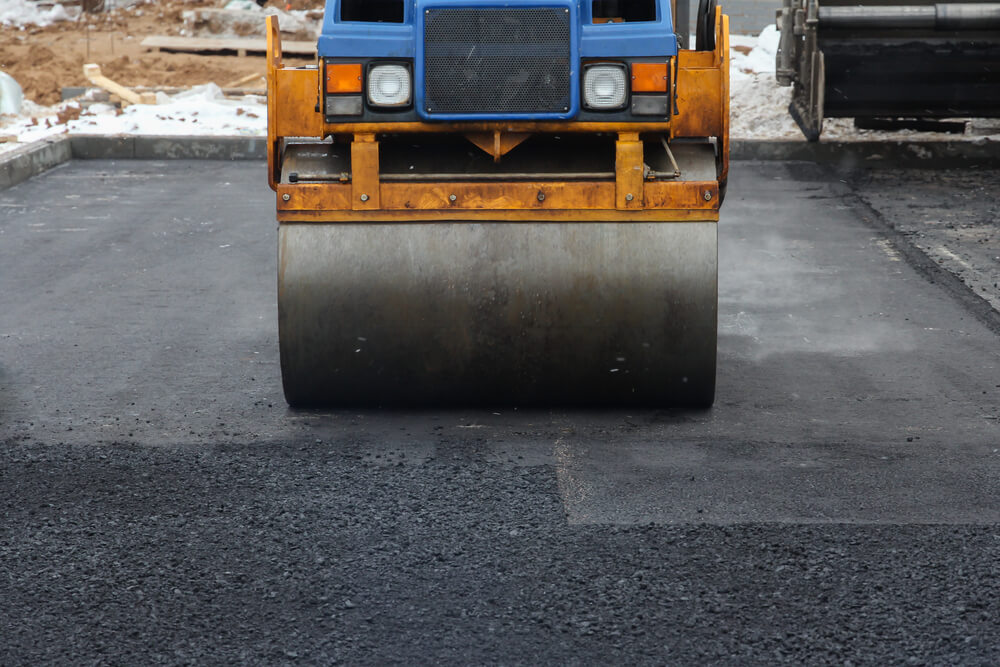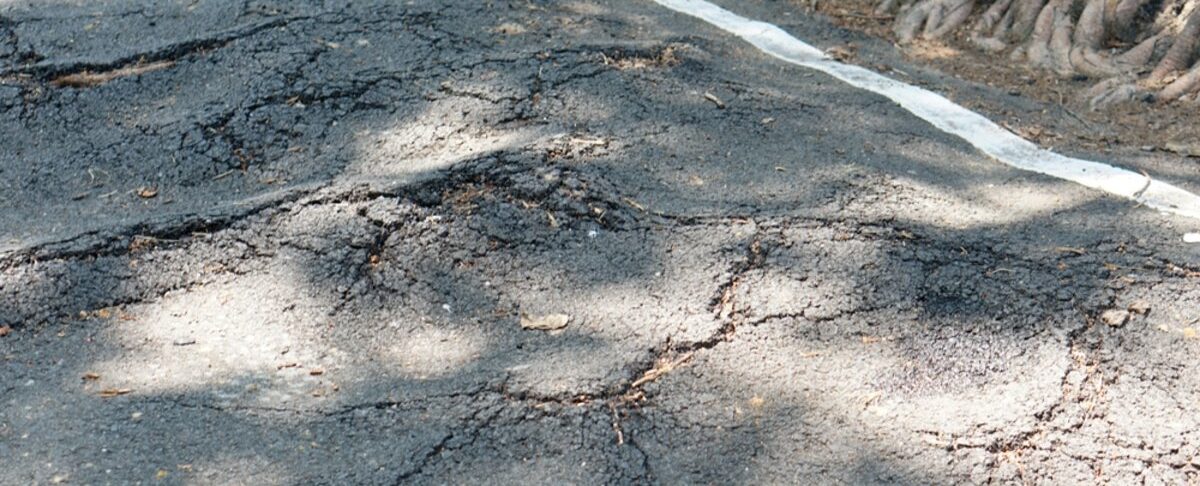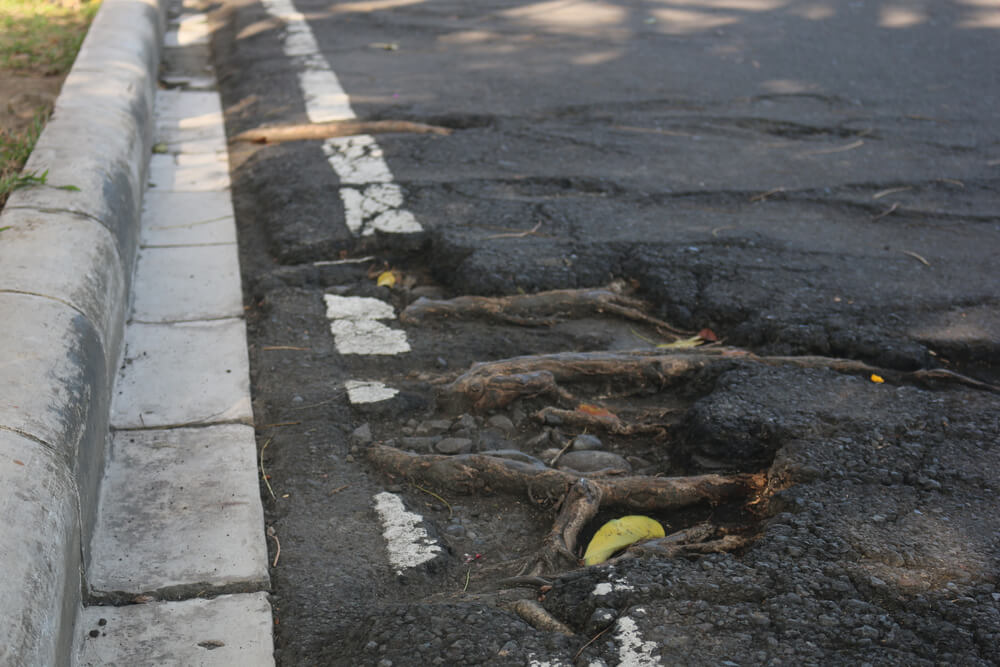Trees are a beloved feature of many homes, providing shade, beauty, and increased property value. However, as these natural wonders grow, their roots can pose a significant challenge when it comes to installing a new asphalt driveway. In this comprehensive guide, we’ll explore the intricate relationship between tree roots and asphalt pavement, offering practical solutions to ensure a long-lasting and functional driveway.
Understanding the Impact of Tree Roots on Asphalt Driveways
Trees are essential components of a thriving landscape, but their root systems can wreak havoc on the stability and integrity of asphalt driveways. As the roots grow, they seek out the path of least resistance, often finding their way beneath the pavement. This relentless pursuit of water and nutrients can lead to a range of issues, from unsightly cracks and heaving to dangerous tripping hazards.
The Perils of Pavement Distortion
When tree roots establish themselves beneath an asphalt driveway, they can cause the pavement to rise and distort, creating an uneven surface. This not only detracts from the aesthetic appeal of the property but also poses a significant safety risk, as the jagged edges and uneven terrain can lead to costly accidents and liability concerns.
The Insidious Nature of Root Expansion
As the tree roots continue to grow, they can expand and contract in response to changes in moisture levels. This cyclical process can cause shallow and deep cracking within the asphalt, gradually undermining the structural integrity of the driveway over time. If left unchecked, these issues will only worsen, leading to a costly and disruptive repair process.
Proactive Measures: Preventing Tree Root Damage
The best approach to dealing with tree roots and asphalt driveways is to be proactive. By taking the necessary precautions during the planning and installation stages, you can significantly reduce the risk of future problems.
Strategizing Driveway Placement
When designing a new asphalt driveway, it’s crucial to carefully consider the location of existing trees or the planned placement of new ones. Ensure that the driveway is positioned at a safe distance from the tree’s anticipated root zone, allowing ample space for the roots to grow without compromising the pavement.
Incorporating Root Barriers
Physical root barriers are a highly effective preventive measure. These specialized barriers, made of metal, fiberglass, or high-density polyethylene (HDPE), are designed to redirect tree root growth away from the driveway. By strategically placing these barriers during the initial construction phase, you can create a protective barrier that guides the roots away from the pavement.
Optimizing Soil Conditions
Ensuring proper soil conditions beneath the driveway can also play a crucial role in mitigating tree root damage. By avoiding compacted soil and encouraging a well-aerated, nutrient-rich environment, you can incentivize the roots to grow downward rather than spreading laterally towards the pavement.
Addressing Existing Tree Root Damage
Despite your best efforts, it’s not uncommon for homeowners to inherit properties with mature trees and existing asphalt driveways. In these cases, proactive measures may not be an option, and you’ll need to address the existing tree root damage.
Careful Root Removal
If you’re dealing with small, intrusive roots that have already begun to damage the asphalt, a delicate approach is required. Using a gas-powered saw or an asphalt/concrete saw, carefully remove the damaged sections of the pavement, exposing the roots. Gently trim the smaller roots, taking care not to compromise the tree’s structural integrity.
Employing Root Barriers
Even after removing the problematic roots, the risk of future growth and damage remains. To prevent the roots from regaining their foothold, install a physical root barrier system. These barriers can be made of metal, fiberglass, or HDPE, and should be positioned vertically, below ground level, surrounding the tree’s root zone.
Consulting Arborist Expertise
In some cases, the tree roots may be too large or too deeply embedded to be removed safely. When faced with this challenge, it’s best to seek the guidance of a professional arborist. These experts can assess the tree’s health and provide recommendations on the most appropriate course of action, whether it’s selective root pruning or, in extreme cases, tree removal.
Repairing Asphalt Driveways Damaged by Tree Roots
If the damage to your asphalt driveway is already extensive, it’s time to consider a comprehensive repair approach. This process requires careful planning and execution to ensure a long-lasting solution.
Removing Damaged Pavement
Begin by using a gas-powered saw or an asphalt/concrete saw to carefully remove the sections of the driveway that have been compromised by the tree roots. This will allow you to access the underlying issues and prepare the area for the necessary repairs.
Addressing Root Growth
Once the damaged pavement has been removed, it’s crucial to address the root growth that has caused the problem. Carefully trim any exposed roots, taking care not to damage the tree’s structural integrity. If necessary, consult an arborist to ensure the safe removal of larger roots.
Implementing a Root Barrier System
Install a robust root barrier system to prevent future root-related issues. These barriers, made of metal, fiberglass, or HDPE, should be positioned vertically, below ground level, surrounding the tree’s root zone. This will help redirect the roots away from the driveway, minimizing the risk of recurrent damage.
Repaving the Driveway
After the root-related issues are addressed, it’s time to repave the driveway. This can be done using various techniques, such as traditional asphalt paving, concrete, or even flexible paving materials like resin-bound aggregate or crushed granite. The choice will depend on your budget, personal preferences, and the specific conditions of your property.
Ongoing Maintenance and Monitoring

By understanding the complex relationship between tree roots and asphalt driveways, and by implementing a comprehensive approach to prevention and repair, you can enjoy the beauty of your landscaping while maintaining a functional and well-protected driveway. Remember, a little foresight and proactive care can go a long way in preserving the integrity of your property for years to come. Contact Richfield Blacktop today for information on repairing or installing an asphalt driveway.






